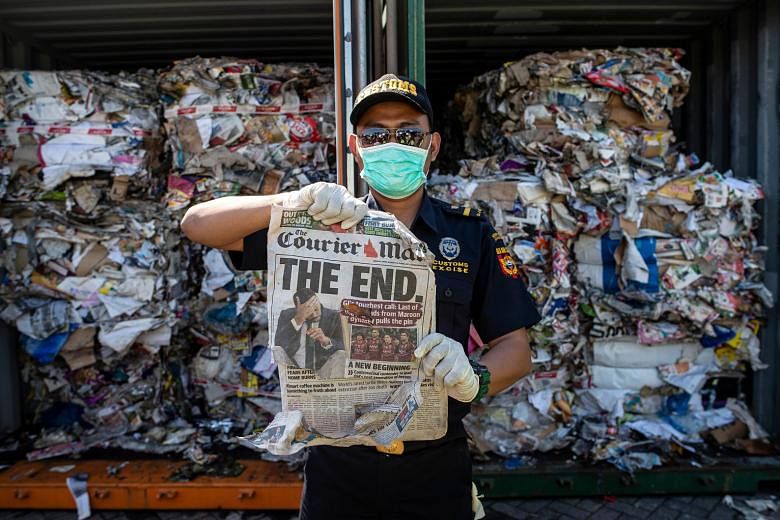SYDNEY • Australia has signalled its commitment to stop exporting recyclable waste, amid a pushback by regional neighbours, including Indonesia and Malaysia.
State and federal governments agreed at a conference yesterday to draw up a timeline for developing their own recycling capabilities.
Federal, state and territory leaders also agreed to task their environment ministers with setting a timetable to end the cross-border disposal of waste plastic, paper, glass and tyres.
Australian leaders agreed that the strategy must seek to reduce waste, especially plastics, decrease the amount of waste going to landfills and maximise the capability of Australia's waste management and recycling sector.
Australian Prime Minister Scott Morrison said waste management was an "issue of great concern right across the community" and "dear to the hearts" of his state colleagues.
He said only 12 per cent of waste that Australians place in recycling bins was recycled.
"There will be no exports of plastics and paper and glass to other countries where it runs the risk of ending up floating around in our oceans, whether off the Great Barrier Reef - which we know there's strong evidence of - or anywhere else," he said.
Mr Morrison said he wanted the export ban implemented soon and did not expect the change to take years.
Australia spends A$2.8 billion (S$2.6 billion) a year exporting 4.5 million metric tonnes of recyclable waste, 80 per cent of which is shipped to Asian ports. This has resulted in the majority of the waste ending up in South-east Asian countries. Indonesia, Malaysia and the Philippines have recently cracked down on waste imports from countries, including Australia.
BLOOMBERG, ASSOCIATED PRESS

